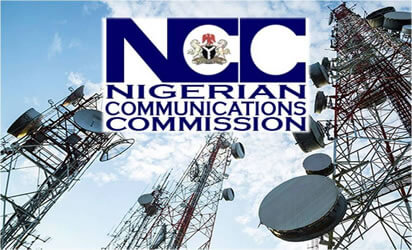- Teledensity rises to 96 percent
Telecommunications subscriptions across all networks hit 185 million as at December 2019, up from the 173 million as at December 2018, according to the latest statistics released yesterday by the telecoms industry regulator, the Nigerian Communications Commission (NCC).
The data showed that the telecoms industry added 12 million subscribers across all networks in one year, to reach 185 million in December 2019, with a teledensity of 96.7 per cent.
While the subscription is made up of the total number of registered subscribers on all networks, teledensity is described as the number of active telephone connections per 100 inhabitants living in an area and is expressed as a percentage figure.
According to the figures, telecoms subscriptions have maintained steady growth for eight consecutive months in the year 2019, beginning from April when the figure stood at 173.6 million and rose to 173.7 million in May, before rising again to 174 million in June same year.
As at July 2019, telecoms subscriptions reached 174.9 million and in August the same year, the figure rose to 176.8 million and in September, it was 179.2 million.
The upward trend continued in October and November as subscriptions rose again to 180.4 million and 182.7 million respectively, before rising to 184.7 million respectively.
Of the total subscriptions base as at last December, MTN, which is the largest telecoms operator by subscriber number in the country, had 69 million subscribers on its network, while Globacom, the third entrant into the telecoms space, maintained the second-largest telecoms operator position, with 52 million subscribers on its network as at December last year, a feat it has maintained in the past three years.
In the latest statistics, Airtel was ranked the third-largest telecoms operator, with a subscriber number of 50 million subscribers, followed by 9Mobile with 14 million subscriptions on its network as at December 2019.
The Minister of Communications and Digital Economy, Dr. Isa Pantami, had recently reiterated the federal government’s commitment to achieve a minimum of 70 percent broadband penetration in Nigeria by 2025.
The minister had said the Digital Economy Policy and Strategy for Nigeria would not be achieved without broadband penetration.
According to Pantami, “Whatever we do, we relied so much on broadband penetration. That is why any effort to compliment what we have been doing to ensure broadband penetration, even for one kilometre is highly commendable, we do not undermine it, we really appreciate it.”
He had said the responsibility of building the ICT sector did not lie on government alone, noting that ICT globally are being supported and developed by private sector.
Pantami had noted that “the main responsibility of government is to ensure that the environment is favorable and conducive and if there are any challenges, government will intervene.
“This is what we will continue to do and I assure you within the time I am going to spend here, I will give 100 per cent to ensure that all the challenges we encounter are addressed.”
The minister, had added that government was serious when it came to broadband penetration and was waiting for the report of the National Broadband Plan Committee (2020-2025) recommendations for the stakeholders to join hands together and ensure they take broadband penetration to the next level.
He had said the access gap in Nigeria was becoming worrisome, stressing the need to bridge it because broadband penetration remained directly proportional to Gross Domestic Product (GDP) of a country.
According to him, the idea of coming up with digital economy is not only on paper, but to try to implement it religiously.
Source@ THISDAY













